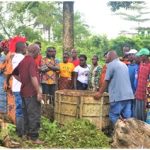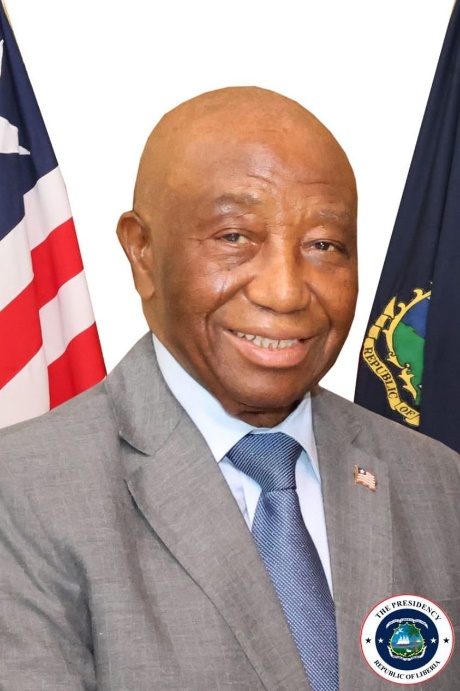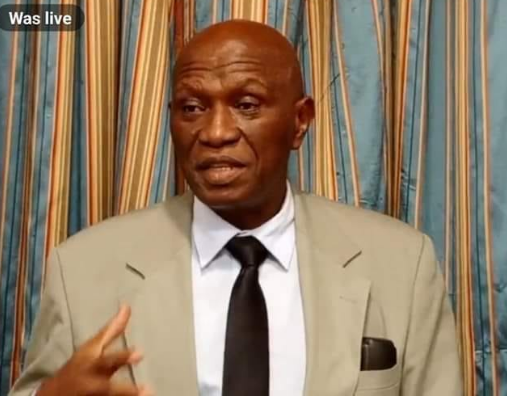With support from the World Bank, the University of Liberia (UL), in collaboration with the National Fisheries and Aquaculture (NaFAA), has officially launched a bachelor’s degree program in fisheries and aquaculture.
The grand ceremony took place in the auditorium of the university’s Capitol Hill campus Wednesday, January 25, 2023. University and high school students, international partners, members of the faculty and the public graced the occasion.
The Department of Fishery and Aquaculture Sciences (DoFAS) falls under the Thomas Jefferson Faulkner College of Science and Technology, University of Liberia.
The Department will offer a bachelor of science degree to students who major in fishery science and management.
Performing the official launching exercise, Vice President, Jewel Howard-Taylor, said the Visitor of the University and President of the Republic of Liberia, H.E. Dr. George Manneh Weah, has committed the government’s contribution to the program.
She said President Weah has committed half a million United States dollars to ensure that people can enroll into the fisheries and aquaculture sciences program, University of Liberia, free of charge.
Vice President Howard-Taylor said President Weah is quite clear that his job is to make Liberia better, and not bitter.
She said the medical program and the teacher’s college are free, and so the government will ensure that the fisheries and aquaculture sciences program is free.
The Vice President stated that international partners provided almost two million United States dollars for the degree-granting program to be run at the University of Liberia.
Additionally, Vice President Howard-Taylor said it is important to encourage females to be a part of the program because it will help sustain their families and provide all kinds of benefits to their children.
The President of the University of Liberia, Prof. Dr. Julius Julukon Sarwolo Nelson, Jr., expressed special gratitude to the government for the contribution that will come to the new program.
“Madam Vice President, we are grateful. I know we won’t stop calling you here. You are an Alumna, and we will make sure that we will work with you and the Deputy Speaker and Representative [Moima Briggs] Mensah and other members of the House and the Senate,” said Dr. Nelson.
He said the University will work with the National Legislature to ensure that it gets a special allocation for the fishery program.
In his welcome statement, Dr. Nelson said fishery in Liberia plays a key role in terms of food and nutritional security.
“We love to eat fish in Liberia, and have the best fish in the world,” said Dr. Nelson.
Right now, he said, the fishery sector provides jobs for 33,000 Liberians, revenue and foreign exchange earnings for the government and contributes around 10% to Liberia’s gross domestic product (GDP).
“But I believe we can do better to improve these numbers. That is exactly what we have recognized in our partnership with NaFAA and the World Bank,” he added.
In 2012, Dr. Nelson explained, the World Bank-West African Regional Fisheries Project agreed to finance the preparation of a bachelor’s degree in fisheries and aquaculture science curriculum (FASC) for the University of Liberia.
He said it approved funding to support the establishment and running of the program under the Liberia Sustainable Management of Fisheries Project (LSMFP).
“We are grateful to Hon. Emma Metieh Glassco and her team for working closely with the UL Family, that led to the signing of a memorandum of understanding (MOU) in March 2022,” he noted.
The UL President said the university anticipates offering this program to students as early as the first semester for the 2022/2023 academic year.
In an overview, NaFAA Director General, Emma Metieh Glassco, said key progress has been observed and well documented in the Liberian fishery sector.
But she noted that human capacity and capacity development, especially for private-sector involvement, remain a major challenge, indicating the need for continued capacity development.
“In retrospect, the World Bank, West African Regional Fisheries Project, agreed to finance the preparation of a bachelor’s in fisheries and aquaculture science curriculum for the University of Liberia in partnership with the University of Iceland, to address this gap,” said Glassco.
She detailed that in this new project, the Liberia Sustainable Management of Fisheries Project, funding was again approved in the amount of US$1.5 million to support the establishment and running of the program.
She explained that the program is expected to provide students with an opportunity to obtain an undergraduate degree in fisheries and aquaculture sciences.
“It is designed to prepare fishery professionals with competencies and acquiring practical skills in fishery and aquaculture, as well as fish processing and marketing issues,” she noted.







